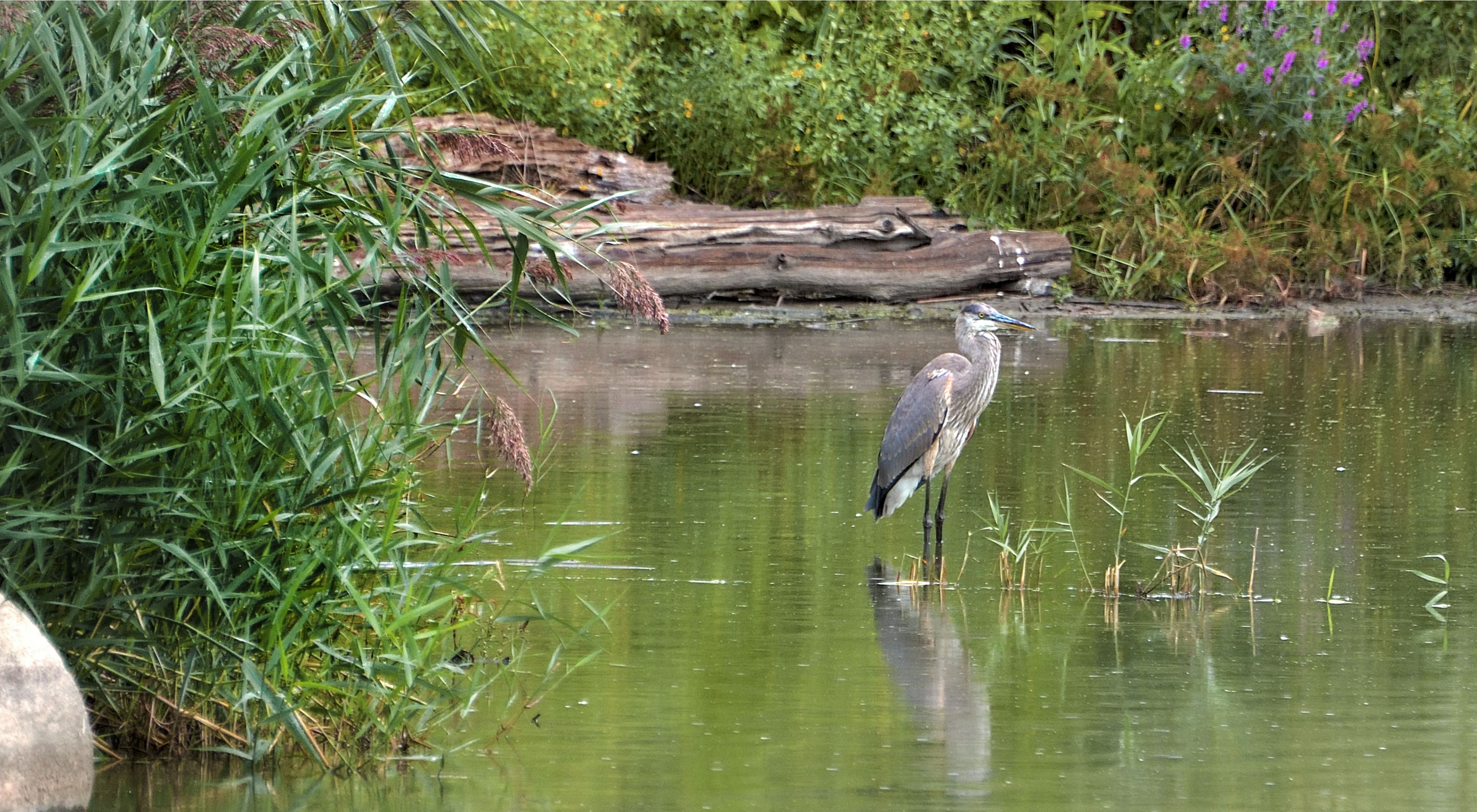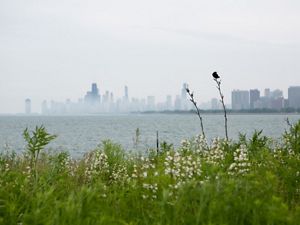Speaking Up Against General Iron and Reserve Management Group
We urge the City to deny the permit for the facility’s relocation to the Southeast Side.
By Michelle Carr, Former State Director, Illinois
“I want my son to be healthy, and live in a healthy environment like other children in the city. This is the typical environmental racism that our community is sick of facing year after year. Lincoln Park neighbors have been fighting this facility for years. If it is not good enough for that neighborhood, why is it good for the Southeast Side?”
This is what I heard recently from Gina Ramirez, a fellow Chicagoan, an environmental colleague, and a resident of the city’s Southeast side, where known industrial polluter General Iron, recently acquired by Reserve Management Group (RMG), is hoping to relocate. If the move is approved, the facility would be just down the street from homes, schools, and local parks, putting the health of both people and nature at risk.
Gina and many other residents, community groups, and environmental organizations are asking the Chicago Department of Public Health to reject RMG’s permit application. At The Nature Conservancy, we stand by and support local leaders, and add our voice to those urging the City to keep General Iron out of the Southeast side.
Some of you reading this may wonder why The Nature Conservancy is weighing in on this issue. The answer is simple: We must speak up. As an organization, we know we need to be more proactive in fighting environmental injustice and racism. Whether it is policies that pollute Black and Brown communities, unequal access to nature, stereotypes around who can enjoy nature, or unfair and inequitable laws, in order to create a world where both people and nature can thrive, we must all do our part to push for change.
This is just the beginning—we know we have a lot of work to do. And one of the many ways we are deepening our commitment to this work is by speaking up and speaking out against the General Iron relocation, using our science-based analyses and experience in communities and natural areas on Chicago’s Southeast side to make our recommendation.

Submit a Comment About General Iron
You can submit a comment to help stop the relocation of General Iron to the Southeast side before the deadline of January 29.
Quote: Gina Ramirez
I want my son to be healthy, and live in a healthy environment like other children in the city. This is the typical environmental racism that our community is sick of facing year after year.
At TNC, we based our determination in part on our evaluation of community vulnerability to the impacts of climate change. Our analysis, called the Chicago Greenprint, identifies all communities along the Calumet River (from Lake Michigan to Lake Calumet) as having especially high vulnerability to poor air quality. This matter, which is due to redlining and centuries of other inequities, is well-documented, given the many environmental justice issues local activists have raised in the Southeast Side. Our analysis utilizes publicly accessible data from government sources related to air quality, filtering the results by U.S. Census data on income and concentration of youth with high vulnerability.
Our determination also comes from our partnerships and investment on the Southeast side. Through close collaboration with local organizations, we work with community volunteers, including families with young children, to engage them in stewardship of the valuable natural areas at Chicago Park District sites such as Big Marsh and Indian Ridge Marsh. Since 2015, we have also led a coalition that has brought federal funding to restore habitat at these parks, totaling over $875,000. Our collective goals are to improve the quality of these green spaces, and the many physical and mental health benefits they provide.

The relocation of General Iron, however, would effectively undo all of this good work for both people and nature. Big Marsh and Indian Ridge Marsh are within one mile of the proposed General Iron facility. Eggers Grove Forest Preserve and William Powers State Recreation Area, two additional green spaces where we have also supported restoration programs, are similarly close and generally downwind of the proposed facility. That means that the volunteers performing vital restoration work at these natural areas, as well as members of the community using them for recreation, would be exposed to air pollution from General Iron should the facility be allowed to relocate. The same is true for the homes, schools, and other facilities located near the proposed site. We would like to again stress that the relocation wouldn’t simply introduce pollution into the air—it would compound the risks to a community that, as we have seen through our Greenprint analyses, is already overburdened with industrial air quality issues.
We appreciate and support the Department of Public Health’s deficiency letter to General Iron from December 23, 2020. However, the issues with the permit application go well beyond the gaps in the information supplied by General Iron. It is clear from many data sources, including our own, that the 11600 Burley Ave. location—and the Southeast Side in general—is an inappropriate location for a large recycling facility. For this reason, we encourage the Department to deny this permit.
We make this recommendation based on our relationships within the community, our scientific analyses, and our mission to create a world in which both people and nature thrive. For me, this issue is also personal. I care deeply about the health and well-being of my fellow Chicagoans, from one end of the city to another, from the north to the south to the east to the west. And right now on the Southeast side, the soil and air are contaminated. There are high levels of harmful metals near Washington High School, and arsenic and lead recently had to be remediated from Hegewisch Little League field. This is not right. No one should have to worry about the quality of the air they breathe when they leave their house in the morning, what chemicals are hiding in the soil below their feet, or the health of their family when they visit a nearby park or natural area. Ensuring the safety of our colleagues, partners, and neighbors; pushing for equal access to nature, clean air, and clean water; building communities where both nature and people thrive—this is the work of conservation, of protecting life on Earth.
And, as Gina said in an earlier blog post, “Now is the time to think about how we can expand protections for our health in other areas like stopping industry from putting communities at risk. We desperately need a more holistic look at what will protect our health in the long run. Hopefully, coming out of this pandemic, we will implement the health and environmental protections we desperately need.”
If you are wondering how you can get involved, you can submit a comment to help stop the relocation of General Iron to the Southeast side. I urge you to do so before the deadline of January 29.



